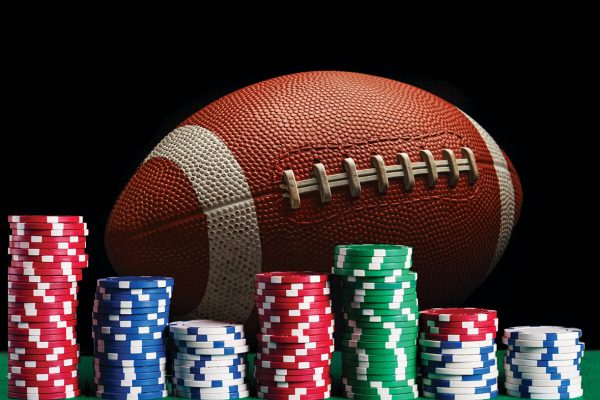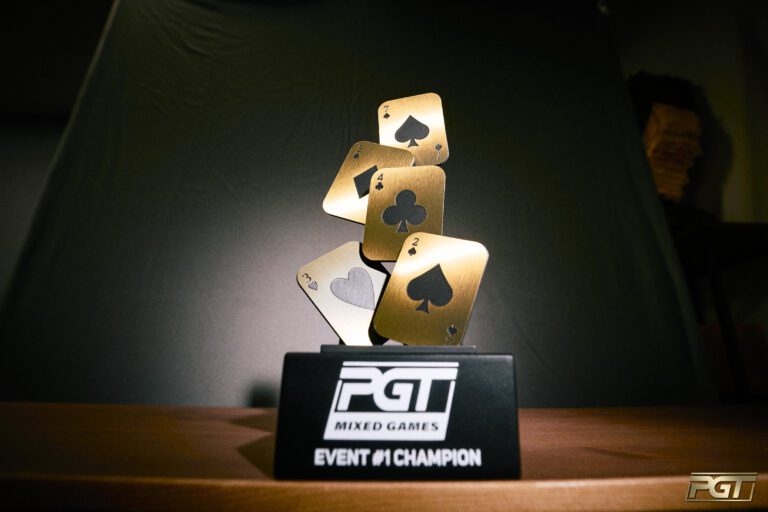Poker has always had a special appeal beyond the walls of the casino. It blends psychology, mathematics, and competition in a way that attracts people from all walks of life. Among its fans are professional athletes who, after experiencing the thrill of their sport, find a similar rush at the poker table. Football players, in particular, have made their way into poker tournaments and celebrity games, showing that the leap from gridiron to felt isn’t as far as it seems.
For a poker audience, this connection to football is more than just a curiosity. It highlights the shared skills between two very different competitive arenas: discipline, risk management, and reading opponents. For fans who enjoy both games, it’s also a reminder that NFL betting can be approached with the same strategic mindset that poker players use every time they sit down to play.

Richard Seymour
Richard Seymour is perhaps the most famous example of a player who made a serious move into poker after football. A three-time Super Bowl champion with the New England Patriots, Seymour transitioned from defensive lineman to poker player with surprising success. He has cashed in multiple major tournaments, including the World Series of Poker, where he has earned six-figure payouts.
Bagged 114k of 50k starting stack @WSOP…Let’s Go Sey😁 pic.twitter.com/u74fH6wCkp
— Richard Seymour (@BigSey93) July 9, 2017
Seymour’s success makes sense when you consider the overlap between football preparation and poker. On the field, he studied opponents’ tendencies, looked for weaknesses, and adjusted strategies on the fly. At the poker table, the same habits apply – only the playbook is a stack of chips and the “opponent tendencies” are betting patterns instead of offensive schemes.
Adrian Peterson
Running back Adrian Peterson built his NFL reputation as one of the fiercest competitors in the game. Retirement hasn’t slowed his drive, and poker has become one of his new outlets. Peterson has appeared in celebrity poker events, competing not for yards but for pots.
Adrian Peterson is crushing the table! He knocks out @Joe_Gatto and scoops a big pot vs @Ninja ! pic.twitter.com/lfymsh4vc1
— Celebrity Poker Tour (@celebpokertour) November 21, 2024
For a player like Peterson, poker provides a competitive arena where instincts, pressure, and adrenaline all play a role. Just as in football, poker requires the ability to make quick decisions in the face of uncertainty. Whether choosing to hit the hole or shove all-in, Peterson thrives on making decisive plays when the stakes are high.
Tom Brady and others at the tables
Even the biggest star of all, Tom Brady, has been linked to poker games. While not a professional player, Brady has participated in celebrity tournaments, online charity poker tournaments, and has been spotted in private games with other athletes and celebrities. For someone who spent two decades mastering preparation and execution in football, it’s not hard to see the attraction of poker’s mental challenges.
Join me, @BenAffleck & lots of other familiar faces for a special online poker tournament benefiting @FeedingAmerica, the nation’s largest hunger relief organization. You can watch and interact live using Twitch today at 11am PT at https://t.co/tEpXh8vW24
— Tom Brady (@TomBrady) April 11, 2020
Other players, including Calais Campbell and smaller-name veterans, have also been known to enjoy poker. Some play casually, some for charity, and some for more competitive reasons. Together they show that the bond between poker and football isn’t rare and it’s a natural crossover for athletes who crave competition, analysis, and the possibility of high rewards.
Why poker and football connect so well
It’s tempting to think that poker and football don’t share much in common. One is a physical sport of collisions and athleticism, while the other is a mental game played in relative silence. But at their core, both games are about strategy, discipline, and handling risk.
In football, every play is a gamble. Coaches weigh probabilities, risks, and potential payoffs when deciding whether to run, pass, or kick. Players learn to keep calm under pressure and trust the math of the playbook. In poker, the same logic applies to betting decisions. Players use odds, risk-reward calculations, and psychological reads to choose when to fold, call, or raise.
Both games also require resilience. In football, a single bad play can’t ruin an entire game if you stay disciplined. In poker, one bad beat shouldn’t push you into reckless decisions. The best players in both sports know how to recover, adapt, and play the long game.
Lessons for NFL betting against the spread
This is where the bridge to sports betting becomes clear. Poker players understand that the key to long-term success isn’t in one big win, but in making consistently good decisions over time. Betting on NFL games against the spread follows the same principle.
When you bet the spread, you’re not just picking the winner but you’re assessing value, weighing probabilities, and deciding if the line offers an opportunity. Like poker, it requires discipline to pass on bad opportunities, patience to wait for the right spots, and emotional control to avoid chasing losses.
The habits that help poker players succeed include bankroll management, research, and resisting tilt. These are the exact same habits that help bettors succeed in the NFL season. Watching players like Richard Seymour and Adrian Peterson embrace poker shows how natural the transition can be from football to cards, and it reinforces the idea that whether you’re at the table or looking at Sunday’s betting lines, the mindset matters as much as the action.
Final Thoughts
The list of NFL players who play poker keeps growing, from Super Bowl champions to Hall of Famers to current stars dipping into the game for fun. What unites them is the same drive for competition and strategy that made them excel on the field. For poker fans, their stories are not just entertaining – they’re reminders that the skills developed at the table apply far beyond poker itself.
Whether you’re stacking chips in a tournament or making picks against the spread each Sunday, the lessons are the same: study your opponents, manage your risks, and never lose your discipline. Just ask Richard Seymour, who went from chasing quarterbacks to chasing bracelets, or Adrian Peterson, who swapped touchdowns for chip stacks. The transition shows that while football and poker may look different on the surface, they’re both games of skill, patience, and the thrill of making the right call under pressure.







